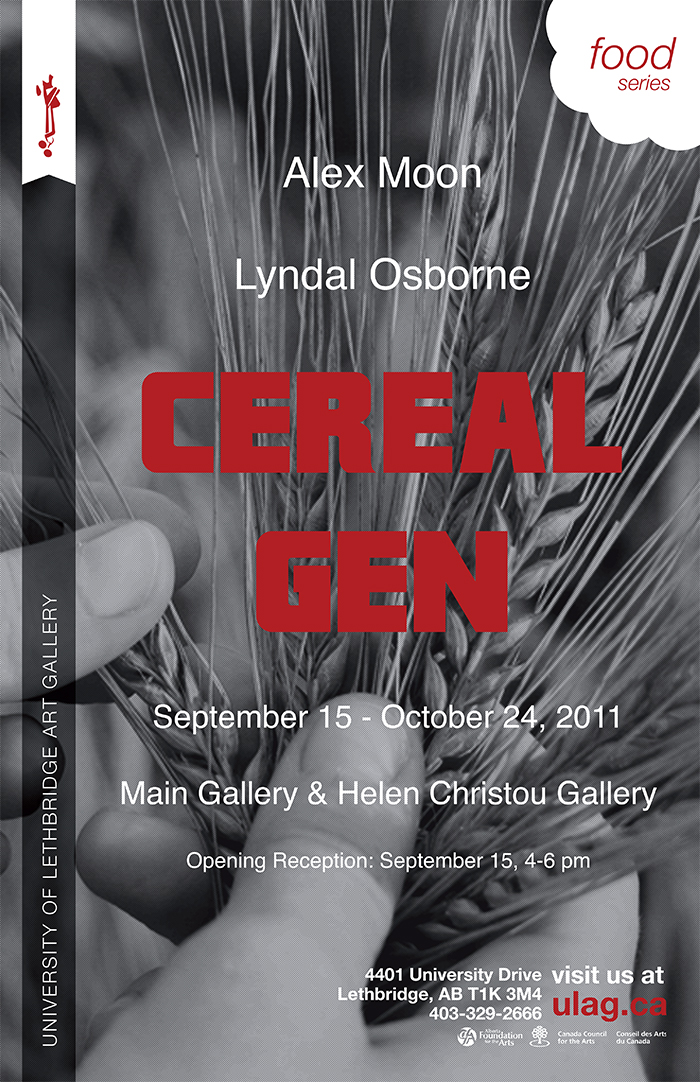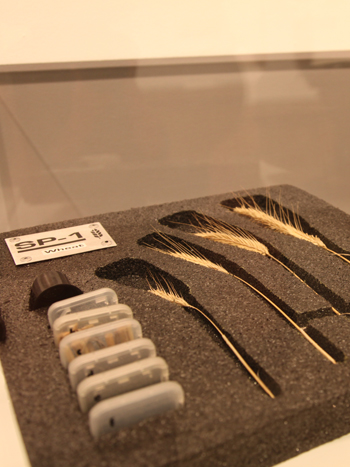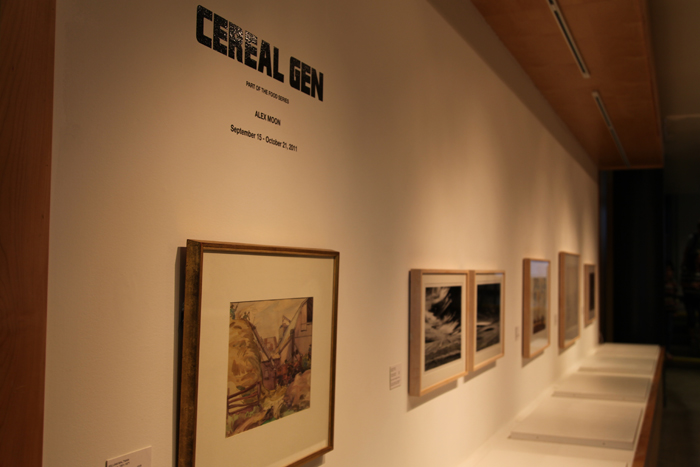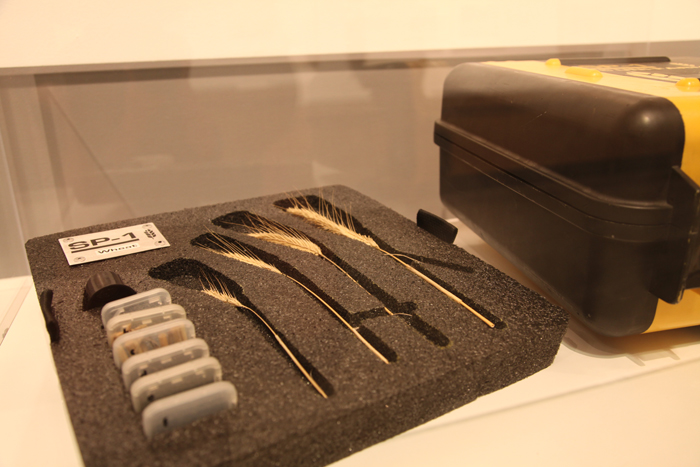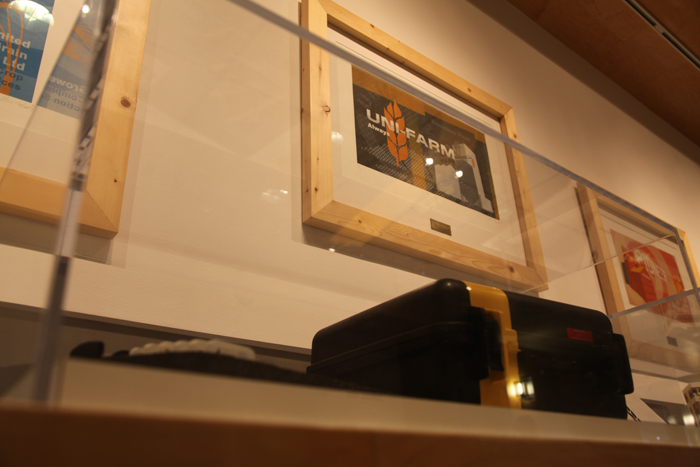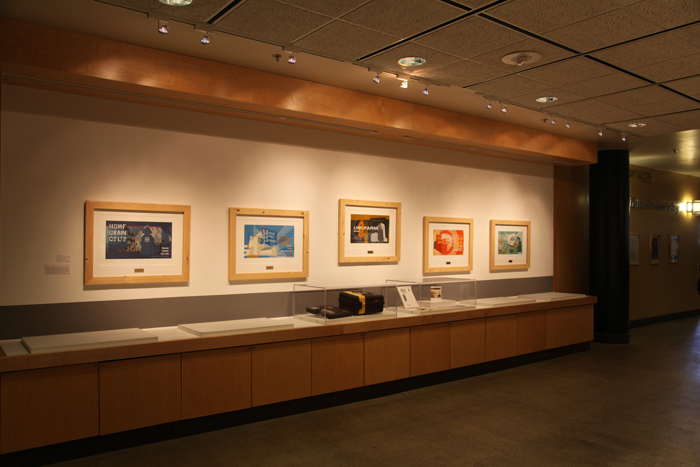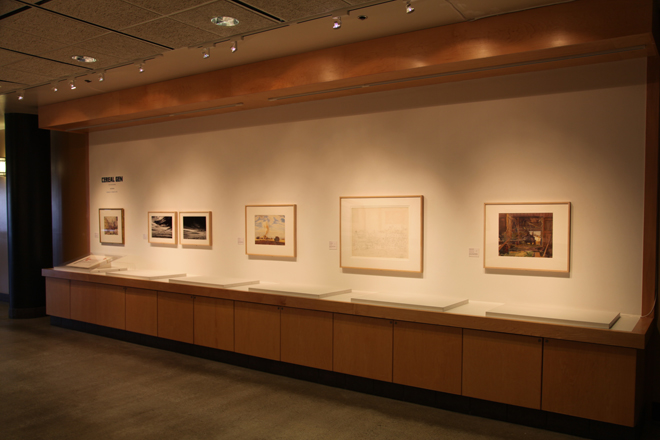Cereal Gen (Food Series)
Helen Christou Gallery
Curator: Josephine Mills
Artist: Alex moon and works from the permanent collection
Alex Moon’s installation in the Main Gallery continues here in the Helen Christou Gallery with artefacts from his fictional Uni-Farm corporation. A selection of work from the U of L Art Collection with agricultural imagery provides a sense of context for Moon’s project. Between October 1st through 6th, look for DodoLab’s project The Important Things to Know About Eating and Drinking In Lethbridge which will be appearing in several sites around campus. The Food series will conclude with The Lion’s Share, a new installation by Rita McKeough in which she playfully explores our relationship to eating animals.
Given the essential role that food plays in our lives as sustenance and as part of social and economic systems, it has been a common subject for artists to explore in their work. With the major changes in recent decades in the application of scientific processes and the relationship between individuals and corporations involved with food production and distribution, there have been heated debate and volumes of research on this aspect of food. Artists have engaged with this timely and important topic in many ways. Some take the role of activist and clearly critique genetic modification or the corporatization of agricultural production. Others, like the two artists with work on display in the Main Gallery, explore the fascinating imagery, complex emotions, and confident assertions of authority and certainty posed by corporations and scientific discourses that emerge within, and are part of, these debates.
Cereal Gen continues in the Main Gallery with more work by Moon as well as an installation by Lyndal Osborne. The Art Gallery would like to thank Bruce McKay for proposing the initial idea for the Food series. The exhibitions have been planned in conjunction with the Liberal Education Program which is currently offering a course titled “Food: A Critical Examination,” taught by McKay. As well, during this semester the new U of L Centre for Culture and Community will be presenting a speaker’s series on campus that will engage further with ideas and issues related to the social and political aspects of food.
Josephine Mills
Director/Curator
Artist Statement
Uni-Farm is an agricultural science-fiction narrative depicting the power struggle over agricultural freedom between two groups; the Uni-Farm Corporation, representing large industrial farming, and the Real Food Alliance, representing the ethical and local food movements. The project consists of a series of installations and videos situating this narrative in the context of a near distant future, exposing the weakness of a society built on corporate control over the necessities of life. By posing the reality of the agricultural industry against what is essentially a conspiracy science fiction thriller, this project gives the impending food crisis a voice.
Uni-Farm: Field Lab 1-X
The Field Laboratory is another part of the ongoing saga “Uni-Farm.” On the surface the display looks to be a clinical outdoor laboratory where different kinds of seed genetics are being experimented on, but not everything is as it seems. It becomes apparent that this is ground zero for a disastrous food supply contamination, which could threaten the world’s food supply. This is all because of the newest invention by the Uni-Farm called the Terminator Gene.
Hopefully not all is lost for the already shallow gene pool that we rely on to survive.
Alex Moon
